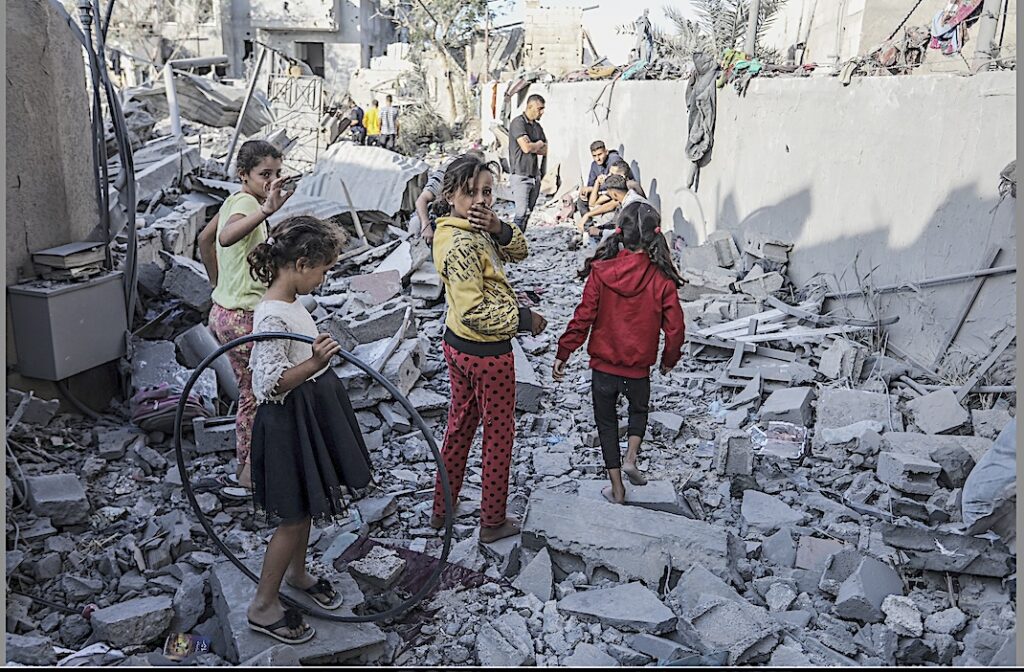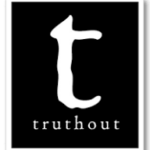
Editor’s note: This article first appeared in Truthout. We urge our readers to support independent media like Truthout.
This spring, with hands overflowing with tenderness, Lolo Mando Al-Qishawi — a Palestinian mother living on Yaffa Street in the Al-Tuffah neighborhood in the eastern part of Gaza City — lovingly adorned her daughter in her Eid dress, her eyes reflecting the girl’s pure, uncontainable joy. But soon, those same hands, trembling with heartbreak, had to strip away the colors of celebration, wrapping her child instead in the cold, final cloth of farewell.
Eid Al-Fitr was meant to be a day of blessings, but instead it turned into a haunting sorrow as a mother’s heart was shattered. How had happiness vanished so swiftly? What cruel twist of fate had stolen away her sweet, innocent girl, who had wished for nothing more than a simple, joyful Eid?
This is how the mothers of Gaza endure every shade of pain.
Mothers in Gaza start fearing for their children during the nine long months of pregnancy, pouring their souls into preserving the fragile life within their wombs.
As a child grows before a mother’s eyes, her love and protection only deepen; she beams with pride at her baby’s first steps and first words. But now, again and again, mothers in Gaza have been forced to gather the shattered pieces of their children’s broken bodies from beneath the rubble.
Lolo, my mother’s cousin, was one of those mothers whose journey through infertility was a tale of endless struggle and heartache. Her greatest dream was simple: to become a mother, to hold her child in her arms, and shower her with boundless love and care.
But this dream was not easy to realize. Lolo endured years of grueling attempts through in vitro fertilization treatments, each procedure a painful step toward hope. The road was never smooth; she underwent numerous fertility treatments, one after another, with every failure intensifying the anguish in her heart. Yet she never gave up. Her determination to become a mother burned brighter than any setback.
Her father, living abroad, supported her unwaveringly, sending large sums of money to fund her costly treatments, never once questioning the sacrifices she had to make.
After more than 750 injections that drained both her body and spirit, her long-awaited miracle finally came — she was pregnant.
Lolo gave birth to the daughter she had dreamed of for so long, naming her Koki, the living symbol of her patience and struggle. Koki, who grew up in her mother’s arms, became the light of Lolo’s life, filling her world with joy for four beautiful years. But happiness, it seemed, was never meant to last.
On the second day of Eid, Koki was filled with excitement to go with her father to her grandparents’ house to wish them a happy Eid and say “Eid Mubarak” to everyone.
Most children in Gaza cherish every moment of Eid — dressing up, going out to visit family, clinging to moments of fleeting joy. Lolo lovingly prepared Koki, dressing her in the beautiful dress she adored, and sent her off with her father, full of joy and innocence.
But just minutes later, a devastating message reached Lolo: The house of her husband’s family had been bombed.
In that heart-stopping moment, the news came — the entire family was killed, including her husband and their beloved daughter Koki. In an instant, everything shattered. The joy of Eid was replaced by a tragedy so deep that no words could ever capture its horror.
Lolo’s mind refused to accept the reality. Moments earlier, she had been laughing with her daughter and husband, holding onto happiness — and suddenly, in a heartbeat, everything was gone. How could a life built on love vanish so cruelly? How could an entire family be wiped out without even a chance to say goodbye?
Lolo’s story is a deep wound, but the story of her daughter, Koki, cuts even deeper.
How could the military kill a child so innocent, so full of life, with such merciless cruelty?
My family couldn’t reach Lolo on the phone because her grief was too raw, too overwhelming. But we watched a video clip of her on the news, broken and inconsolable, clutching her daughter’s small body and crying out: “After all these years of struggle, I finally held you… How could you leave me, my beloved?”
To this day, Lolo wakes each morning with the same heartbreaking question on her lips: What crime did my innocent child ever commit?
Imagine how many other mothers in Gaza are experiencing the same grief as Lolo. We were all born from the womb of a mother who endured and sacrificed for us. We know their feelings — how they fear for us as much as we fear for them, how we live in constant anxiety, always fearing the worst.
I vividly remember at the beginning of the war when a house next to ours was bombed, and my brother Mohammad was struck in the skull. His injury was severe, and the feeling that swept through all of us was as if someone was trying to tear our family apart, to rob us of our happiness. I remember my mother clearly — how she cried bitterly and stayed awake all night, not resting until Mohammad was discharged from the hospital, and we knew he was stable and safe.
How many mothers will continue to live with this fear? How many will carry this unbearable burden, day after day?
It’s not only the fear of death that haunts the mothers of Gaza, but also the unbearable agony of watching their children starve, unable to feed them, powerless to save them. A thought so unimaginable — especially in the year 2025. Who could have ever predicted that children would die from famine in such a time as this?
I vividly remember when the war began, my mother said something that haunts me to this day: “I wish you were still in my womb, so I could protect you more.”
She said this out of a profound fear of losing us, as if she longed for a way to shield us from the horrors we now face.
This article is licensed under Creative Commons (CC BY-NC-ND 4.0), and you are free to share and republish under the terms of the license.

